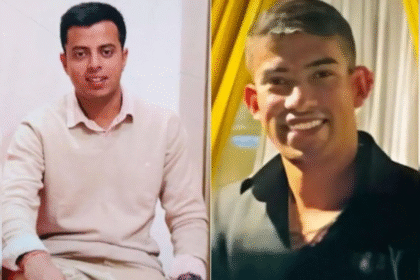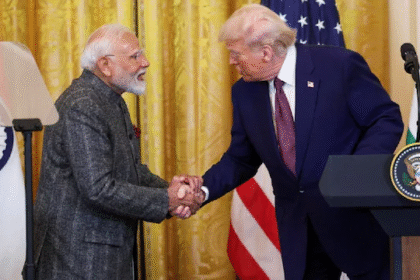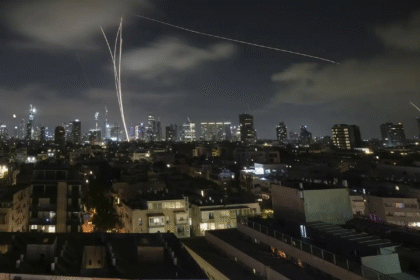Iran Launches Missile Strikes on Tel Aviv and Haifa: Israel Conflict Escalates into Day 4 with Major Attacks
Iran fires missiles targeting Tel Aviv and Haifa as Israel conflict intensifies on day 4. Get the latest updates on the escalating Middle East tensions and security alerts
Iranian missiles have struck Israeli cities of Tel Aviv and Haifa, destroying homes and fuelling concerns among world leaders at this week’s G7 meeting that the conflict between the two regional enemies could lead to a broader Middle East war.
Israel’s Magen David Adom (MDA) emergency service said Monday that four people were pronounced dead after strikes at four sites in central Israel, with 87 injured. The dead were two women and two men, all approximately 70 years old, the MDA said.

Authorities in the central Israeli city of Petah Tikva near Tel Aviv said that Iranian missiles had hit a residential building there, charring concrete walls, blowing out windows and heavily damaging multiple apartments.
Search and location operations were under way in the northern port city of Haifa where about 30 people were wounded, emergency authorities said, as dozens of first responders rushed to the strike zones. Fires were seen burning at a power plant near the port, media reported.
Iranian state TV said the country fired at least 100 missiles at Israel, signalling that it had no intention of yielding to international calls for de-escalation as it pressed on with its retaliation for Israel’s surprise attack on Tehran’s nuclear program and military leadership on Friday.

Iran’s Revolutionary Guards claimed the latest attack employed a new method that caused Israel’s multi-layered defence systems to target each other. The Guardian was unable to verify this claim. The Israeli military did not immediately respond to a request for comment on the strikes. Israeli officials have repeatedly said the defence system is not 100% infallible and warned of tough days ahead.
Israeli strikes on Iran on Sunday killed the intelligence chief of the country’s Revolutionary Guards, Mohammad Kazemi, along with two other officers, Iran’s IRNA state media news agency reported.
Late on Sunday the Israeli military said that it was striking surface-to-surface missile sites in Iran.
Images from Tehran showed the night sky lit up by a huge blaze at a fuel depot after Israel began strikes against Iran’s oil and gas sector – raising the stakes for the global economy and the functioning of the Iranian state.
At least 14 people in Israel, including children, were killed in earlier strikes in the lead-up to Monday’s attacks, according to authorities.
The death toll in Iran had reached at least 224, with 90% of the casualties reported to be civilians, an Iranian health ministry spokesperson said.
G7 leaders began gathering in the Canadian Rockies on Sunday with the Israel-Iran conflict expected to be a top priority.
Before leaving for the summit on Sunday, US president Donald Trump was asked what he was doing to de-escalate the situation. “I hope there’s going to be a deal. I think it’s time for a deal,” he told reporters. “Sometimes they have to fight it out.”
German chancellor Friedrich Merz said his goals for the summit included for Iran to not develop or possess nuclear weapons, ensuring Israel’s right to defend itself, avoiding escalation of the conflict and creating room for diplomacy. “This issue will be very high on the agenda of the G7 summit,” Merz told reporters.
Iran has told mediators Qatar and Oman that it is not open to negotiating a ceasefire while it is under Israeli attack, an official briefed on the communications told Reuters on Sunday.

In Washington, two US officials told Reuters that Trump had vetoed an Israeli plan in recent days to kill Iran’s supreme leader, Ayatollah Ali Khamenei.
When asked about the Reuters report, Israeli prime minister Benjamin Netanyahu told Fox News “There’s so many false reports of conversations that never happened, and I’m not going to get into that.“
“We do what we need to do,” he added.
Israel began the assault with a surprise attack on Friday that wiped out the top echelon of Iran’s military command and damaged its nuclear sites, and pledged the campaign would escalate in the coming days.
Iran vowed to “open the gates of hell” in retaliation.
Trump has lauded Israel’s offensive while denying Iranian allegations that the US has taken part and warning Tehran not to widen its retaliation to include US targets.
However, two US officials said on Friday that the US military had helped shoot down Iranian missiles that were headed toward Israel.
The US president has repeatedly said Iran could end the war by agreeing to tough restrictions on its nuclear program, which Iran says is for peaceful purposes but which western countries and the International Atomic Energy Agency (IAEA) nuclear watchdog say could be used to make an atomic bomb.
Read Also : U.S. Pulls 200+ Diplomats, Military Families from Middle East as Iran Tensions Escalate by 75%








